
Which companies go bankrupt most often in Ukraine?
780 companies began bankruptcy proceedings in 2025, according to data from the Supreme Court of Ukraine. This is about 10% of the total number of business closures. The turnover of the largest bankrupt companies ranges from UAH 3.4 to 7.7 billion. Most often, limited liability companies go bankrupt. Last year, companies engaged in wholesale trade and agriculture became insolvent. Kyiv leads in terms of the number of bankrupt businesses.
780 companies began bankruptcy proceedings in 2025. This is only 10% of the total number of business closures. Most companies in Ukraine go through the process of voluntary closure — this is 60% of cases. A total of 8,191 companies undergoing procedures related to the termination or change of business operations were recorded in Ukraine last year.
Most often, LLCs go bankrupt — 84% of cases in 2025.
Only in 48 cases do bankrupts try to stay afloat: to restore solvency and continue working through a reorganisation procedure. However, this is less than 1% of cases.
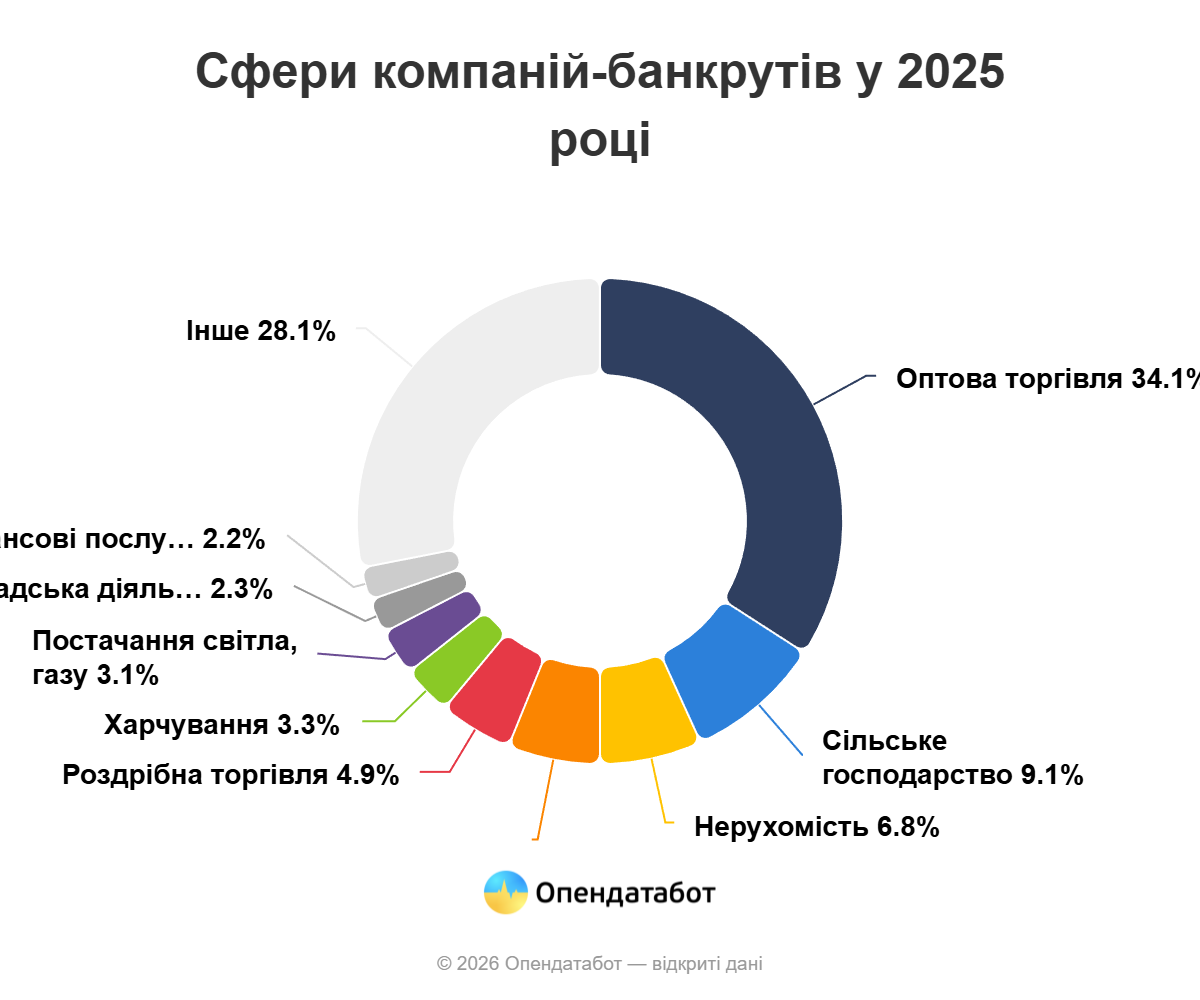
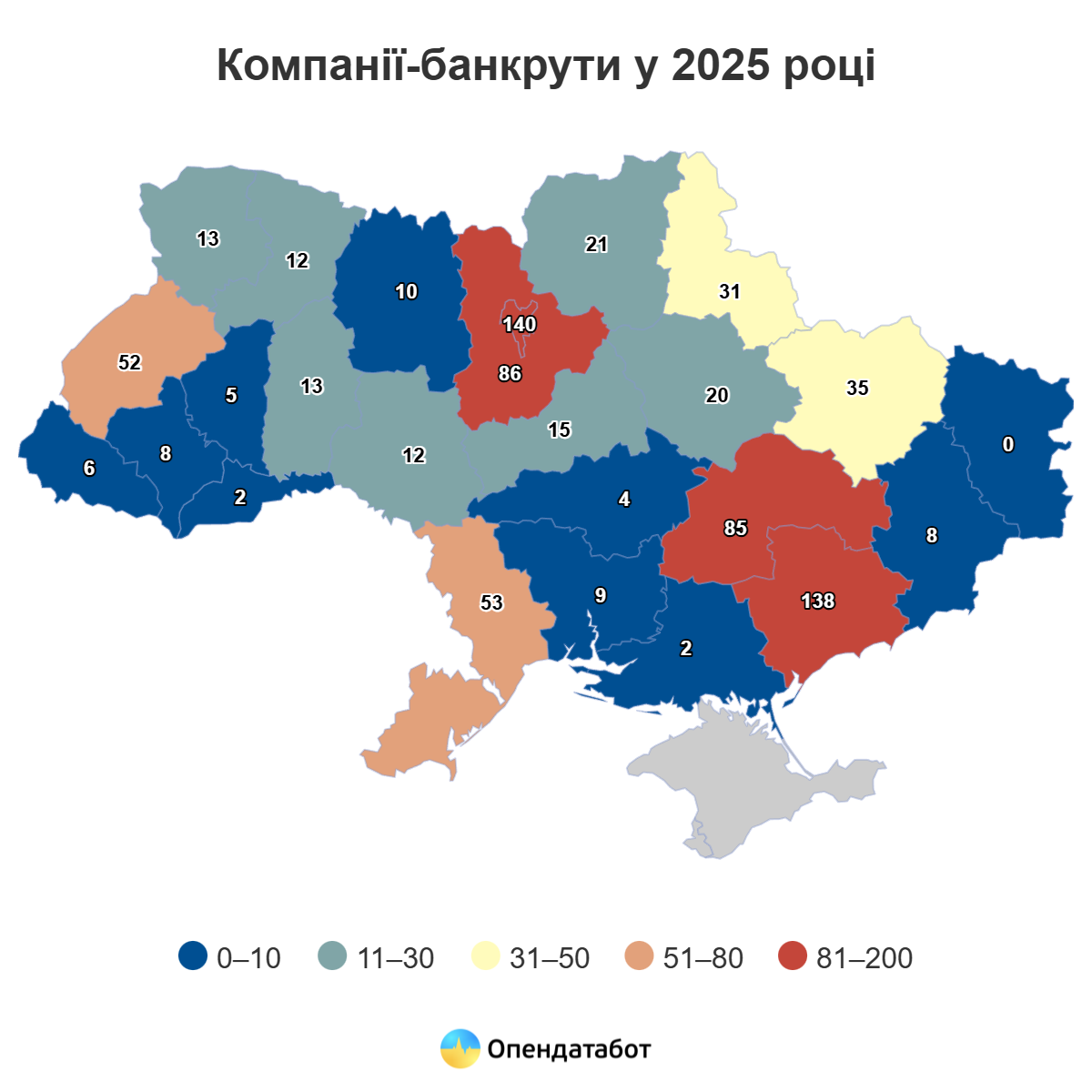
Currently, owners are increasingly opting for preventive restructuring: 8 cases in 6 companies were opened in 2025. These are cases where a business begins restructuring before it becomes insolvent, trying to avoid bankruptcy.
Most often, wholesale companies go bankrupt: 266 enterprises. In second place is agriculture: 71 companies. Next are real estate operations — 53 companies, construction — 48 companies, and retail trade — 38 companies.
Most bankruptcy proceedings against businesses are opened in Kyiv — 140 companies (18%). Almost as many are in the frontline Zaporizhzhia region — 138 companies (17.7%). Next are Kyiv region — 86 companies (11%), Dnipropetrovsk region — 85 (10.9%) and Odesa region — 53 companies (6.8%).
The top 10 companies against which bankruptcy proceedings have been initiated include enterprises that until recently had revenues ranging from 3.4 to 7.7 billion hryvnia. The largest case concerns DEGS HOLDING, which was engaged in gas trading and had revenues of over 7.7 billion hryvnia in 2024. Next are PRIDE SOLUTIONS UKRAINE with revenues of UAH 6.08 billion and OPT-SYSTEMS with UAH 5.46 billion.
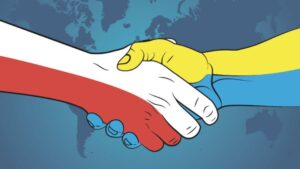
Almost half of all Polish companies founded by Ukrainians were established during the Great War
About 30 thousand companies founded by Ukrainians were registered in Poland as of the beginning of July 2025, according to the Polish register of legal entities Krajowy Rejestr Sądowy (KRS). Almost half of them were opened after the start of the full-scale program. Most Ukrainian businesses are concentrated in three voivodeships: Mazowieckie (Warsaw in particular), Małopolskie (Krakow and the region), and Dolnośląskie (Wrocław and the surrounding area).

29,044 companies with Ukrainian citizens as ultimate beneficiaries are currently registered in Poland. Almost half of them have been opened by Ukrainians since the beginning of the full-scale war – 13,014 businesses. A total of 208,251 companies have been opened in Poland over the past 3.5 years. Ukrainians accounted for 6% of new businesses during this time.
Most companies were registered by Ukrainians in 2022 – 4,780 businesses. This is a third more than in 2021.
Most often, Ukrainians register an analog of the Ukrainian LLC – spółka z ograniczoną odpowiedzialnością – 27,656 or 95% of all Ukrainian businesses in Poland.
The number of charitable organizations founded by Ukrainians in Poland has also increased significantly: since 2022, Ukrainians have established 486 foundations. This is 4 times more than before the start of the full-scale program.
Most Ukrainian companies are concentrated in three voivodeships: Mazowieckie (including Warsaw) – 11,568 companies, Małopolskie (Kraków and the region) – 3,200 businesses, and Dolnośląskie (Wrocław and the surrounding area) – 3,019.
Most of the Ukrainian companies registered by Ukrainians after the start of full-scale business in Poland are small businesses. Almost 10 thousand companies have an authorized capital of less than 10 thousand zlotys. Only 133 businesses have a capital of more than 500 thousand zlotys.
In total, the capital of all Ukrainian companies in the Polish register is over 7.34 billion zlotys. Of this amount, 533 million zlotys are accounted for by businesses opened after the start of full-scale trade. It is worth noting that although 45% of companies were established after the outbreak of the war, their total capital is 12 times less than that of the “pre-war” Ukrainian business in Poland.
As a reminder, in 2024, Ukrainians paid almost 1.65 billion zlotys ($414 million) to the Polish state budget in personal income and corporate income taxes, according to the analytical center of the international employment company Gremi Personal, citing the Polish Ministry of Finance.
https://opendatabot.ua/analytics/ukrainian-business-in-Poland

More than 15% of sanctioned companies will be under restrictions for life
184 companies in Ukraine are currently under NSDC sanctions, according to the National Security and Defense Council of Ukraine. Most of these businesses are located in Kyiv, Odesa, and Lviv. Most often, these companies are engaged in wholesale trade, except for the trade in motor vehicles and motorcycles.
Most of the companies appeared on the sanctions list after a series of updates in 2024. So this year, the number of such businesses has almost tripled: by 119 companies. By contrast, the fewest companies were added to the sanctions list in 2023 – only 10 (5.4%).
Every second company in the total number will be under sanctions until 2027. Another 19.4%, or 36 businesses, will be released from the restrictions no earlier than 2034. The sanctions are in place for an indefinite period of time, with 15.1% or 28 companies.
The majority of these businesses are wholesale trade, except for trade in motor vehicles and motorcycles – 61 companies (33.2%). Another 10.3% are engaged in specialized construction work – 19 companies.
Film production and construction of buildings are in the top three, with 7 companies or 3.8% each.
Most businesses under sanctions are located in Kyiv – 102 in total. There are significantly fewer companies in Odesa region – 17 or 9.2%. Lviv region is also among the leaders in terms of the number of companies – 13 or 7.1%.
Among the sanctioned companies, the top three in terms of revenue in 2023 are as follows:
The sanctions list can only be left if the President of Ukraine signs the relevant decision of the National Security and Defense Council or if the sanctions against the company have expired and have not been renewed. The most profitable businesses that have already left the sanctions list are:
Detailed information about the companies under the NSDC sanctions can be found in the special register of the Openatabot. The relevant information will also be available in the regular company card on our website.
https://opendatabot.ua/analytics/rnbo-companies
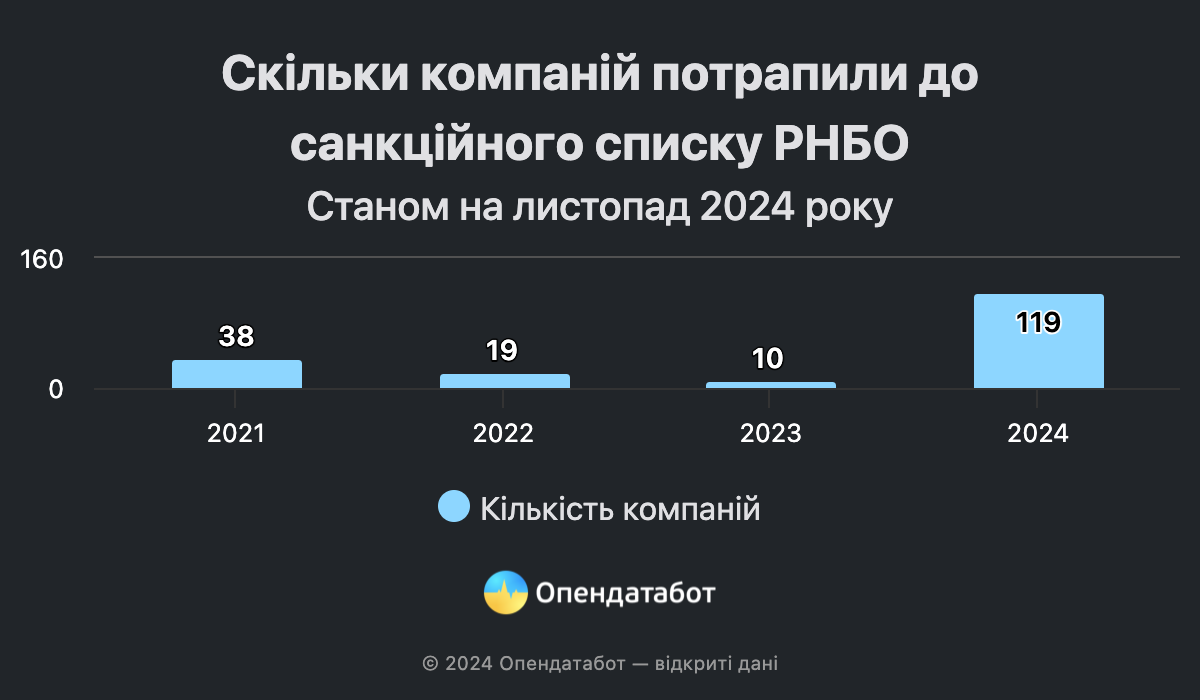

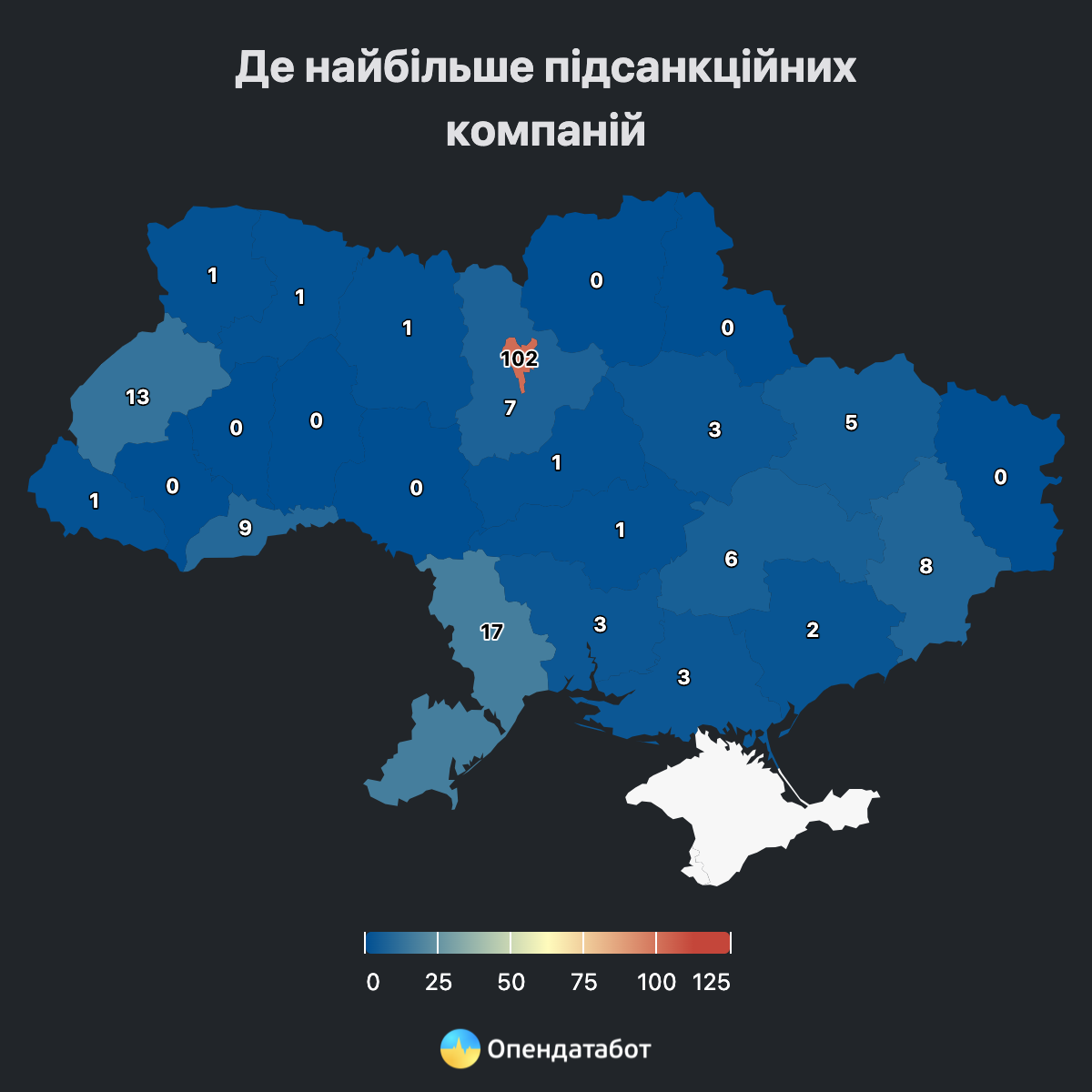
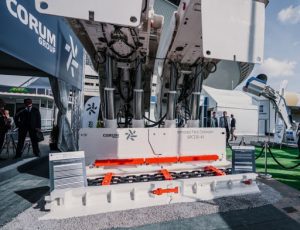
Corum Group (DTEK) plans to complete the supply of 400 cast components for powered supports to the largest mining company in Europe Polska Grupa Górnicza SA (PGG) by the end of March this year, Corum wrote on Facebook.
According to the statement, the first batch under the contract, the cost of which was not disclosed, has already been supplied to the customer. Cast components are produced by Corum Svitlo Shakhtaria plant (Kharkiv).
“These components will cover the Polish partner’s need for missing components for the production of powered roof support sections,” the statement said.
Corum recalls that it has been cooperating with PGG since 2018, and three mines of this company (Sośnica, Piast-Ziemowit and Mysłowice-Wesoła) use more than 400 Corum support components.
Corum Group is part of the energy company DTEK Energy and is the largest manufacturer of mining equipment in Ukraine.
The key clients of the company are 14 largest mining holdings, whose assets include 150 mines and open pits.
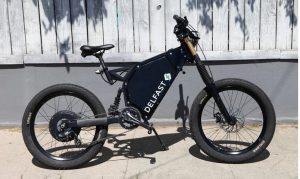
Daniel Tonkopiy, co-founder of the Ukrainian electric bike company Delfast, expects support from President of Ukraine Volodymyr Zelensky to build a plant for the production of Ukrainian electric bikes.
He wrote on his Facebook page that he plans to establish a serious production of tens of thousands of electric bikes a year with a design and engineering bureau, production of metal, plastic, electrical and electronic components, battery assembly, software development and much more, which is necessary for the production and assembly of electric vehicles.
“I presented our project to the president, told him that the Mexican police ride our bikes. Zelensky immediately offered his help in transferring Ukrainian police officers to our electric bikes: “We will help, you can contact me. Yes, directly. My team will help,” Tonkopiy said, citing the president as saying.
He also said that Zelensky announced his readiness to help Delfast to build a plant for the production of electric bikes, presumably in Kyiv region.
Delfast already has a confirmed demand for tens of thousands of bikes from customers around the world, Tonkopiy said.

Former U.S. Department of State Special Representative for Ukraine, Kurt Volker, has become an independent member of the board of directors of BGS Rail, which operates in Ukraine, since September 1, U.S.-government funded Radio Free Europe/Radio Liberty has reported.
According to it, BGS Rail is registered in Ukraine. Avia Solutions Group expects Volker’s participation to strengthen the company’s presence in the market.
“By using his vast experience gained in previous positions, we believe that his arrival to the company will further expand Avia Solutions Group’s global reach and strengthen BGS Rail’s position as one of the market’s leading service providers,” the group’s statement reads.
It is noted that Avia Solutions also has in its disposal a comment made by Volker, who points to the opportunity to strengthen the Ukrainian economy in his new work.
“By working with Avia Solutions Group in its development of BGS Rail, I see an opportunity to strengthen Ukraine’s economy, build world-class services, and create jobs for Ukrainian citizens. This goes hand-in-hand with Avia Solutions Group’s global strategy of building world-class services and market position,” he said.
Volker served as Special Representative of the U.S. Department of State for Ukraine in 2017-2019.